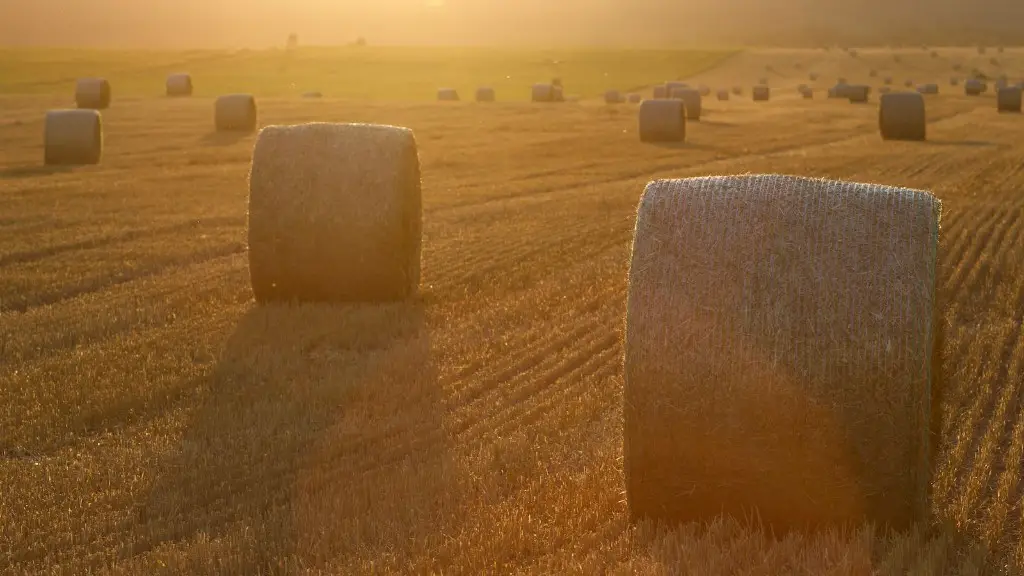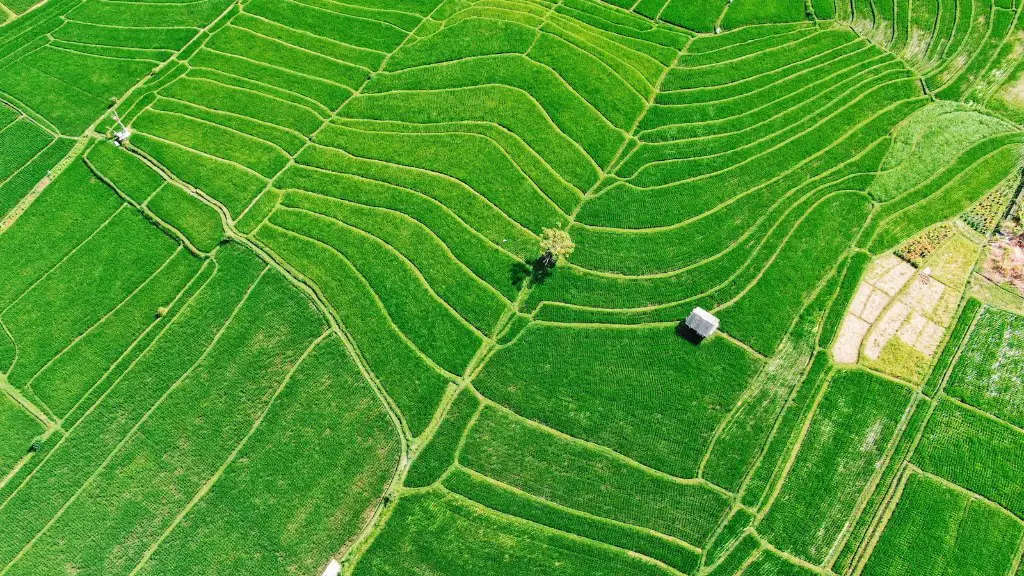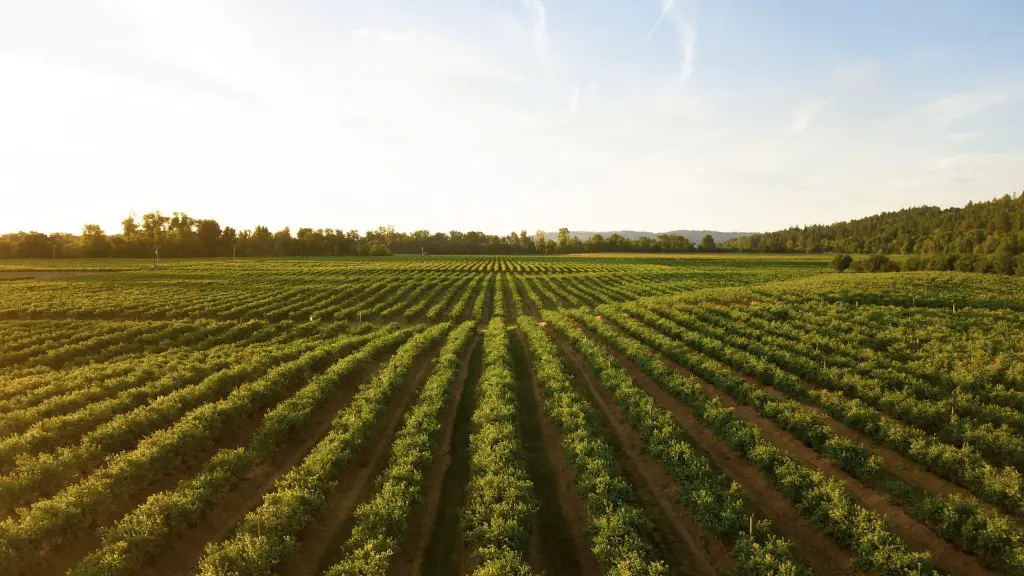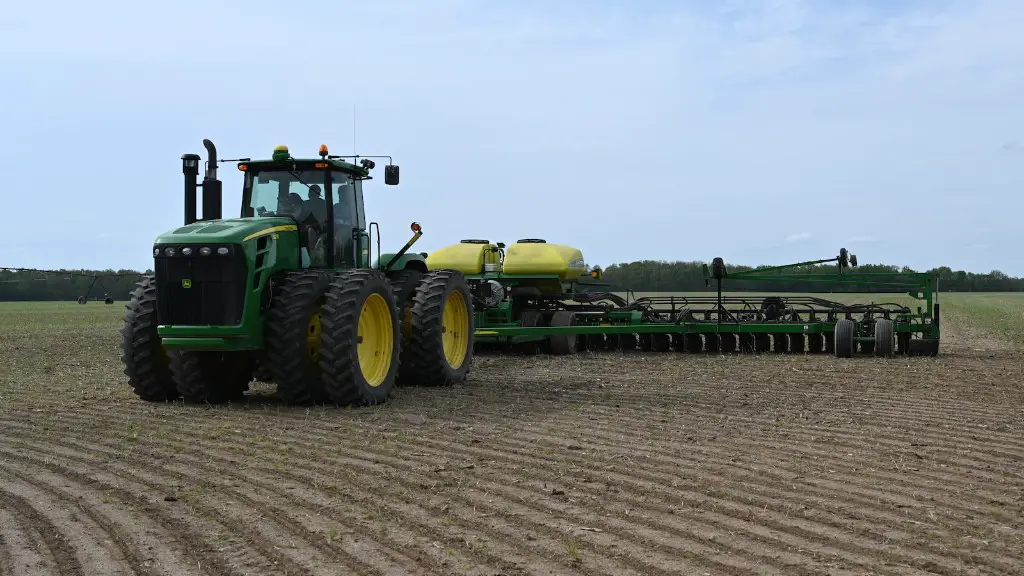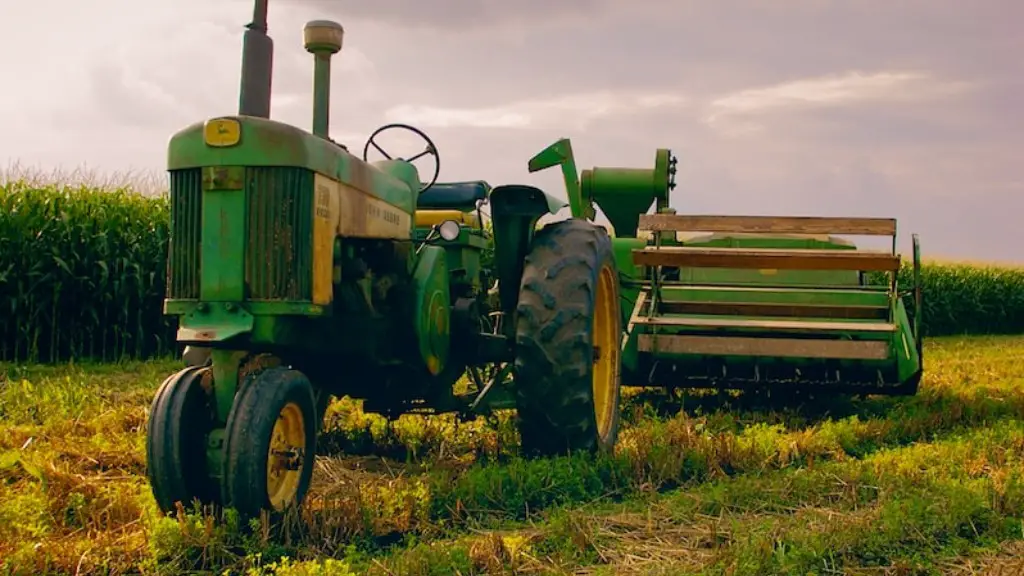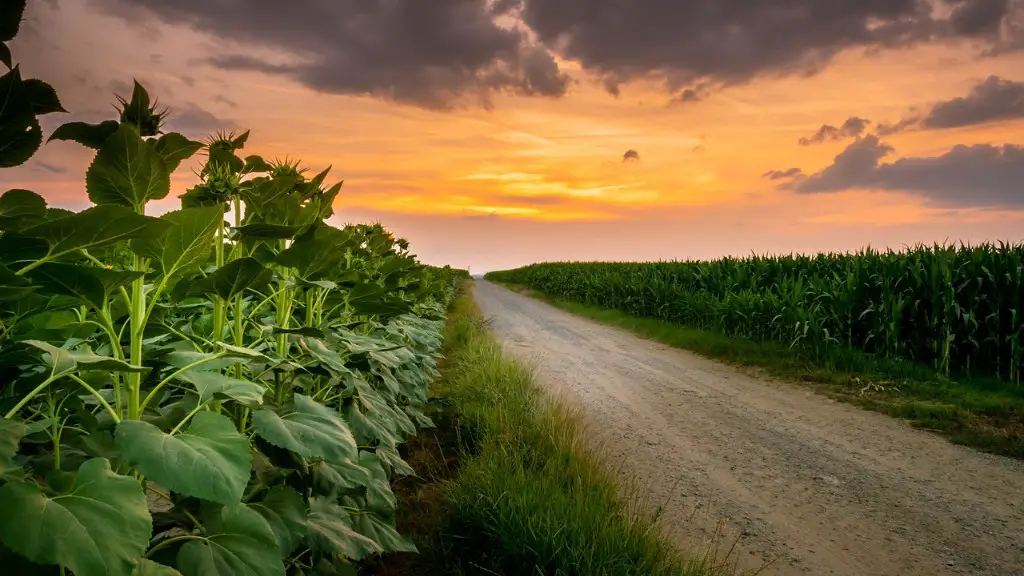Dutch agriculture is critically dependent upon technology for a variety of reasons. The Netherlands is a small country with a high population density. This means that there is not a lot of land available for farming. In order to make the most of the available land, Dutch farmers have to be very efficient. They achieve this by using the latest technology.
Dutch farmers also have to contend with a lot of rainfall. This can make it difficult to get crops to grow. Technology helps them to overcome this challenge by providing better drainage systems and more effective ways to control the water table.
climate change is another big challenge that Dutch agriculture faces. The country is already seeing the effects of climate change, with more extreme weather conditions and rising sea levels. Technology is helping farmers to adapt to these changes, by developing new varieties of crops that are more resistant to drought and floods.
In order to meet the growing demand for food, Dutch farmers will need to continue to rely on technology to improve efficiency and productivity.
Dutch agriculture is critically dependent upon technology for a variety of reasons. First, the Netherlands has a relatively small land area, which means that farmers must make efficient use of every square meter of farmland. This can only be accomplished through the use of sophisticated farming techniques and equipment. Second, the Netherlands is located in a region with a relatively harsh climate, which means that farmers must use greenhouse technology to grow crops. Finally, the Dutch government provides substantial financial incentives for farmers to adopt new technologies, which further encourages the use of technology in agriculture.
How Dutch agriculture uses technology?
Precision farming is a type of greenhouse technology that is used to grow crops. This type of farming is claimed to be the most advanced in the world by some in the Dutch food industry. Precision farming took off in the country after World War II as a reaction to one of Europe’s last experiences of famine.
The Netherlands is one of the world’s leading exporters of agricultural products, thanks to its fertile soil and favourable climate. The country’s flat land makes it easy to cultivate crops and rear livestock, and the moderate climate means that plants and animals can be kept healthy and productive.
How Dutch agriculture uses technology to fully control the growing environment of crops
Dutch agriculture is characterized by the growth of plants and crops in greenhouses. In greenhouses all aspects of growth can be artificially controlled, including the artificial imposition of climatic conditions and artificial growth patterns (ie hydroponics) and even the mechanical automation of farming. This allows for a much more efficient and productive agricultural industry in the Netherlands.
Agricultural technology is extremely important in today’s world. With a growing population, it is important to increase crop productivity in order to meet the demand for food. Additionally, reduced use of water, fertilizer, and pesticides helps to keep food prices down. Agricultural technology also has a reduced impact on natural ecosystems and less runoff of chemicals into rivers and groundwater.
Which country has the most advanced agriculture technology?
The United States of America is the model country in the agriculture production sector. It is the development of crop analysis, scientific soil and more innovative machinery that have made the United States the best country for farming. In 2020, the United States had just over 2 million acres of land. This is a testament to the efficiency of American farmers.
The automation of irrigation systems has had a profound impact on agriculture. These systems have revolutionized how water is supplied to crops, improving the efficiency of water distribution and the quality and quantity of agricultural production.
Why the Netherlands is the world’s agriculture leader?
The Netherlands is a major player in the global agri-food industry, with a strong focus on sustainability. The country is home to more than half of the world’s food production companies, as well as many of the world’s leading research and development facilities in the field.
The Netherlands has a long tradition of innovation in agriculture and food production, and has been a leader in developing sustainable methods and technologies. The country’s commitment to sustainability is evident in its strong support for international initiatives such as the UN’s Sustainable Development Goals.
The Netherlands is also home to some of the world’s largest companies in the agri-food sector, such as Heineken, Unilever, and Nestlé. These companies are committed to sustainable practices and are investing heavily in research and development to further improve their impact on the environment.
The Netherlands is clearly a major player in the global agri-food industry, with a strong focus on sustainability. This makes the country an ideal partner for businesses and organizations that are looking to make a positive impact on the world.
The Dutch economy was able to achieve the highest standard of living in Europe by the middle of the 17th century due to a number of factors. In addition to trade, an early industrial revolution powered by wind, water and peat helped the Dutch economy to grow. Additionally, land reclamation from the sea and an agricultural revolution also contributed to the Dutch economy’s success.
Is Dutch agriculture sustainable
The Netherlands is a powerhouse when it comes to sustainable farming. Not only does the country produce a lot of food, but it also does so using very little water and minimizing waste. This makes it a model for other nations to follow.
The Netherlands’ intensive livestock farming system produces an unusual excess of animal feces. When mixed with urine, those feces give off ammonia and nitrous oxide. The former is a pollutant that can leak into air and water, harming local wildlife.
How efficient is Dutch agriculture?
The Dutch have long been known for their innovative and efficient agriculture, and this commitment to sustainability is one of the reasons why. By producing more food with fewer resources, they are not only being good stewards of the land, but are also setting an example for the rest of the world to follow.
With the introduction of new technology in agriculture, farmers are able to increase yields and produce higher quality food and fibre. New tillage equipment, irrigation systems and air seeding technology allow farmers to work more efficiently and get better results. These advances have made a big difference in agriculture, and have helped to improve the quality of life for many people.
What are the technological factors affecting agriculture
The success of agriculture sector depends on many factors. Some of the important factors are:
1. Irrigation: Water is the most important input in agriculture. Proper irrigation facilities help in ensuring timely and adequate supply of water to crops.
2. Fertilisers: The use of fertilisers is vital for good crop yields.Farmers need to use the right type and amount of fertiliser for the crops they are growing.
3. High yielding variety of seeds: The use of high yielding varieties of seeds is another important factor for good crop yields. Farmers need to choose the right variety of seeds for the crops they are growing.
4. Insecticides/pesticides: The use of insecticides and pesticides is important for controlling crop pests and diseases. Farmers need to use the right type and amount of insecticide/pesticide for the crops they are growing.
5. Farm machineries: Farm machineries help in reducing the drudgery of farm work and increasing the productivity of agriculture. Farmers need to use the right type of farm machinery for the crops they are growing.
6. Financial institutions: Financial institutions provide the necessary financial support to farmers for undertaking agricultural activities. Farmers need to approach the
There are many top agricultural producing countries in the world, including the United States, China, India, Russia, and Canada. These countries produce a variety of crops and livestock, including maize (corn), mangoes, milk, and oats.
Which country is mostly dependent on agriculture?
The countries most dependent on agriculture are those where agriculture makes up the largest share of GDP. In Liberia, agriculture accounts for over 76% of GDP, followed by Somalia (60%), Guinea-Bissau (55%), and the Central African Republic (53%). These countries are largely reliant on agriculture for their livelihoods, and any shocks to the sector can have a severe impact on the economy and on people’s lives.
There are a number of reasons why these countries perform well on the Sustainable Agriculture pillar. Some of the reasons include:
-All of these countries have a strong commitment to sustainable agriculture and have policies and programs in place to support this.
-These countries have a high level of agricultural productivity, which helps to reduce the environmental impact of agriculture.
-All of these countries have well-developed infrastructure and infrastructure for sustainable agriculture.
-These countries have a strong focus on research and development in the area of sustainable agriculture.
Final Words
Dutch agriculture has been critically dependent upon technology for a number of reasons. First, the Netherlands is a small country with a high population density. This has placed a premium on land, making it necessary to utilize every bit of arable land to its fullest potential. To do this, Dutch farmers have had to adopt highly efficient farming methods and make use of the latest agricultural technologies.
Second, the climate of the Netherlands is not ideally suited for agriculture. The country has a cool, maritime climate with frequent rainfall. This can make it difficult to grow crops, and Dutch farmers have had to develop innovative methods and technologies to overcome these challenges.
Third, the Dutch economy is highly diversified, and agriculture is just one sector. As such, Dutch farmers must compete with other sectors in the economy for resources. This has made it necessary for them to be highly efficient and to adopt cutting-edge technologies in order to remain competitive.
Fourth, the Dutch government has placed a strong emphasis on supporting the agriculture sector. The government has invested heavily in research and development, and has also provided financial incentives for farmers to adopt new technologies.
Overall, Dutch agriculture has been critically dependent upon technology for a number of reasons. This has helped the Netherlands to become one
The Dutch population is highly urbanized, which has resulted in a large demand for food produced by a relatively small agricultural sector. This sector is critically dependent upon technology in order to produce the high quantities of food required to meet the needs of the population. Without the use of advanced farming techniques and equipment, the Dutch agricultural sector would be unable to keep up with the demand for food.
